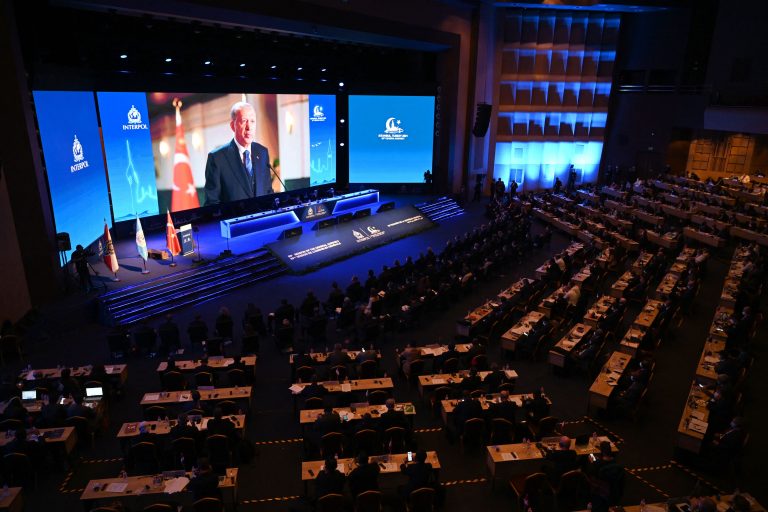Beijing has succeeded in putting one of its members into a key position of power at Interpol, the intergovernmental organization that facilitates crime control and police cooperation worldwide.
On Nov. 25, Hu Binchen, a Deputy Director General at China’s Ministry of Public Security (MPS), was elected as an Asia delegate for Interpol’s 13-member Executive Committee. His ascension was strongly opposed by several pro-democratic and free speech groups.
READ MORE: Massive International Resistance Against China’s Candidate for Interpol Committee
Over four dozen lawmakers from 20 nations had written a letter to their governments, warning against the appointment of a CCP member to such an important international position.
The lawmakers, who are from the Inter-Parliamentary Alliance on China (IPAC), insisted that Hu’s appointment might pave the way for Beijing to misuse Interpol’s red notice alert system and enforce its laws in foreign lands. The letter points out that the Chinese regime has often sought to use the red notice to persecute dissidents living abroad. An example would be the arrest of Uyghur activist Idris Hasan in Morocco after Beijing filed a now-deleted red notice.
Success
You are now signed up for our newsletter
Success
Check your email to complete sign up
“By electing Hu Binchen to the executive committee, the general assembly would be giving a green light to the [Chinese] government to continue their misuse of Interpol and would place the tens of thousands of Hongkonger, Uygur, Tibetan, Taiwanese and Chinese dissidents living abroad at even graver risk,” the letter warned.
IPAC called on world governments to revoke their existing extradition treaties with China and Hong Kong so as to protect Chinese dissidents and activists living in exile. These people “must be protected” from the PRC’s “harassment and intimidation,” it said.
Peter Dahlin from the NGO Safeguard Defenders called Hu’s appointment a “disgrace” that will undermine trust in Interpol and promote China’s abuse. “A fox is now placed in charge of watching the sheep,” Dahlin tweeted.
Chinese outlets celebrated Hu’s appointment. The state-backed Global Times characterized Hu’s win as a victory for the CCP despite the “slander and malicious obstruction” from Western politicians and human rights activists.
Meanwhile, Grace Meng, the wife of the former Interpol President Meng Hongwei who disappeared in 2018 while visiting China, said that Hu might face the same fate as her husband, in an interview with the Associated Press (AP).
Meng revealed that she and her husband knew Hu very well and they were close friends. In addition to being Interpol President, Meng Hongwei was also China’s vice minister for public security prior to being arrested and thrown into detainment in 2018. Hu used to be Hongwei’s subordinate, with both having closely worked together for around 20 years.
“At the moment, China is, for lack of a better phrase, eradicating the ‘pernicious influence’ of Mr. Meng Hongwei, carrying out a political purge… So if Mr. Hu Binchen sympathizes with us or helps us, or expresses kindness toward us, that will mean that he will be violating party discipline. If he respects party discipline, he’ll be going against basic human goodness. So this is a problem… One day, will Mr. Hu Binchen also be disappeared, like Mr. Meng?” she stated.














